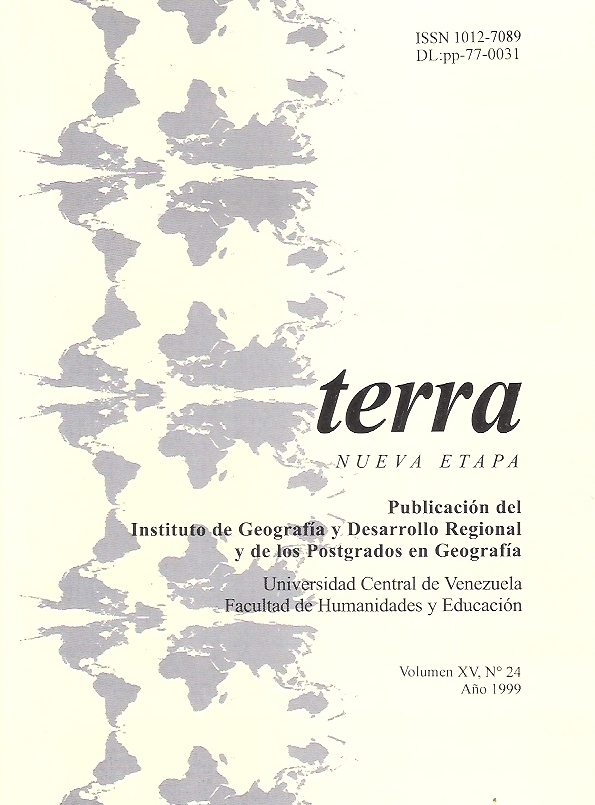La lógica todo/parte: fundamento científico para un lenguaje de las geografías
Palabras clave:
Lógica Todo/Parte, objeto, lugar, espacialResumen
Es aceptado que la geografía estudia objetos susceptibles a ser identificados en la superficie terrestre, y en ese sentido y de acuerdo al objeto de estudio la geografía ha sido considerada como ciencia natural, humana, que relaciona a ambas, pero también de acuerdo a la forma de abordar el tratatamiento de sus objetos y lugares de estudio. Además es conocido que los geógrafos desempeñan labores en campos diferentes como investigación fundamental y aplicada, docencia, pero lo más impactante es que por lo general la geografía para el “el gran público” no está escrita por geógrafos, y también que especializaciones geográficas como la geopolítica es ejercida a menudo por otros profesionales como por ejemplo politólogos, abogados, periodistas y políticos. Es por eso que en este artículo se pretende dotar a los geógrafos de una ayuda, que les permita la posibilidad de realizar reflexiones geográficas objetivas de tal manera que sin desestimar la aceptación de la tierra como un todo, en cambio, admitan la diferenciación entre un lugar y un objeto situado en la superficie terrestre a través de la aplicación de reflexiones de la lógica Todo/Parte. El uso de este razonamiento lógico contribuye entre otros logros a probar la coherencia del discurso geográfico como por ejemplo entre la “centralidad” y la “continentalidad”, facilita el entendimiento entre los geógrafos al permitir la formación de un verdadero “lenguaje” geográfico, y también la lógica Todo/Parte ofrece la posibilidad de ordenar y generar datos cuantificables de unidaddes espaciales y de formular matemáticamente teorías que coadyuven la axiomatización geográfica.ABSTRACT
It is generally accepted that geography studies objets that can be identified on the earth surface. In this sense, and according to its objet of study, geography has been considered either as a natural science, a human science, or a subject that integrates them both. But geography has also been treated according to the way the objets and locations of study are processed. Nowadays, it is known that geographers have dealt with different fields such as fundamental and applied research or teaching. But what is striking is the fact that the geography written for the people en general, is not always written by geographers, and that particular geographic fields such as political geography is frequently in practice by other professionals such as politic scientists, lawyers, journalists and politics themselves. In the light of these considerations, this article pretends to provide geographers with a skill that allows them to reflect about particular geographic subjects, not disregarding the idea of the earth as a whole that is constantly changing. Instead, they are encouraged to admit the differences between places and objects located on the earth surface by applying a certain type of logic reflection: the Whole/Part. The use of this logical thinking is a contribution, among others, to probe the coherency of the geographical dissertation, for example between the “centrality” and the “continentality”. It also allows the communication between geographers through the building of a real geographic “language”. Moreover, the Whole/Part logic gives also the possibility to order and generate quantifiable data of spatial units and to formulate mathematical theories capable to contribute to the geographic axiomatic process.
Descargas
Los datos de descargas todavía no están disponibles.
Descargas
Número
Sección
Artículos

